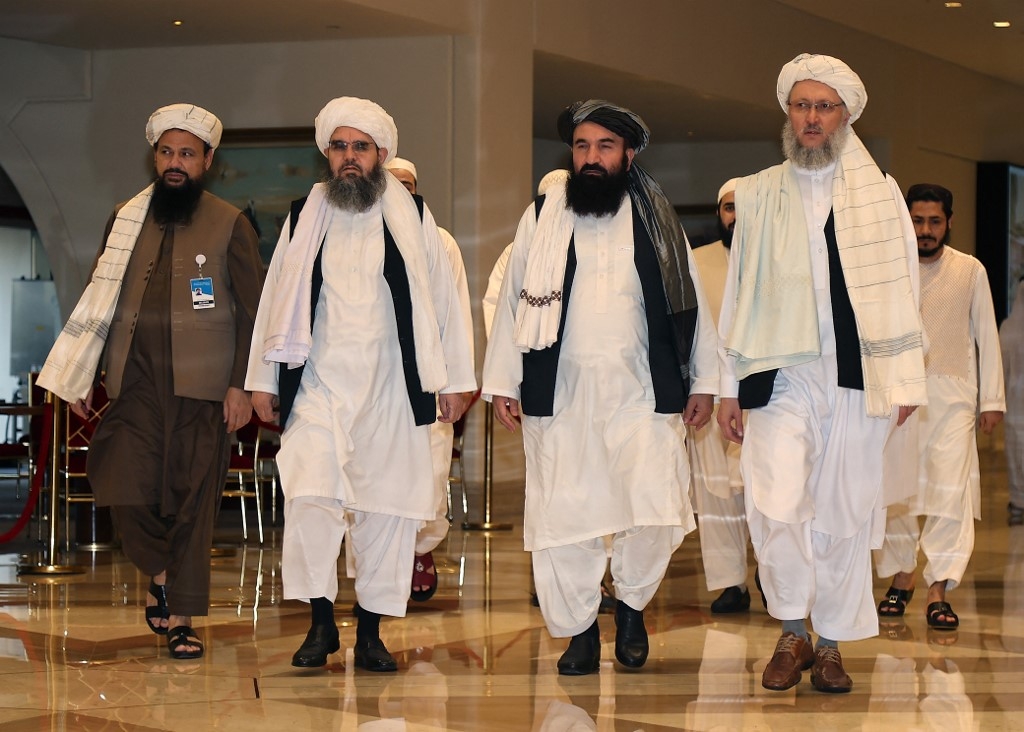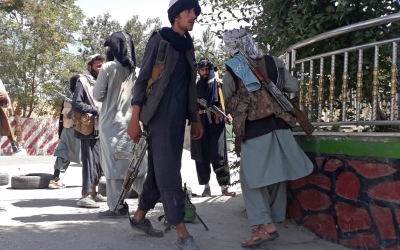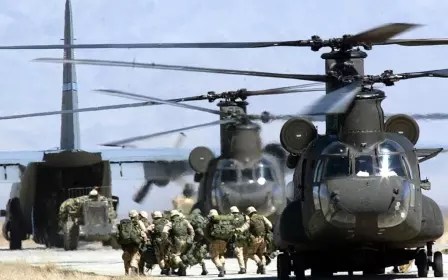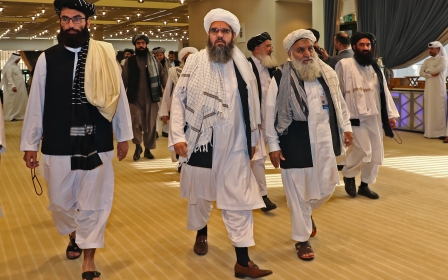Afghanistan: Qatar urges Taliban to cease fire during meeting in Doha

Qatar has called on the Taliban to cease fire and pull back the group’s offensive in Afghanistan amid the rapid collapse of the local government's US-trained forces.
Qatari foreign minister Mohammed bin Abdulrahman al-Thani, during a meeting with a top Taliban representative in Doha on Saturday, urged the group to stand down and "reduce escalation", the ministry said in a statement.
"During their meeting, the minister of foreign affairs urged the Taliban to ... adopt a ceasefire, which would contribute to accelerating efforts to reach a comprehensive political settlement that would guarantee a prosperous future for the government and people of Afghanistan," the statement said.
It is the clearest call to date from Qatar, which hosts the Taliban's political office, for the group to halt its lightning advance across Afghanistan.
New MEE newsletter: Jerusalem Dispatch
Sign up to get the latest insights and analysis on Israel-Palestine, alongside Turkey Unpacked and other MEE newsletters
Doha has facilitated on and off meetings between the Taliban and the Afghan government for months, with little sign of progress as the group presses forward with its attacks on government forces.
Afghan government negotiators in Qatar have offered the Taliban a power-sharing deal in return for an end to fighting in the country, according to the AFP, citing a government negotiating source.
With the country's second and third largest cities, Kandahar and Herat, now in Taliban hands, the besieged capital, Kabul, has effectively become the last stand for government forces, who have offered little or no resistance elsewhere.
International efforts
Envoys from the United States, China, Pakistan, the United Nations, the European Union and others met Taliban representatives and Afghan government officials on Thursday in Doha.
The statement issued following that meeting reaffirmed that foreign capitals would not recognise any government in Afghanistan "imposed through the use of military force".
'We have said our word... All foreign forces must leave our country'
- Mohammad Naeem, Taliban spokesperson
Western embassies and aid agencies began evacuating civilian staff from Afghanistan on Friday after the Taliban's capture of Kandahar and Herat, in an advance that has raised fears of the collapse of the US-backed government.
Iran's foreign ministry called on the Taliban to ensure the safety of diplomats and staff at its consulate in the western city of Herat.
Meanwhile, the Taliban has asked all foreign forces to leave the country.
On Wednesday, Turkish President Recep Tayyip Erdogan said it was possible for him to meet with the Taliban's official leader - who he did not name - to discuss the situation regarding Kabul international airport, which Ankara wants to continue to protect.
A spokesman for the group later told Middle East Eye that Taliban leaders are willing to meet with President Erdogan "under the right circumstances".
"Everyone wants to meet our leader. And we would also like that, but in the right circumstances. There is communication between us and the Turkish embassy in Doha. And we like to have relations with all countries," said Taliban spokesperson Mohammad Naeem in a written statement to MEE.
"We have said our word to Turkey about the security of Kabul airport in all frankness and clarity. All foreign forces must leave our country."
The Taliban’s spiritual leader, Haibatullah Akhundzada, has not been seen in public since 2016. The group’s current public face is Mullah Abdul Ghani Baradar, one of the co-founders of the Taliban, who is leading the political office and is part of the group's negotiating team in Doha.
One US official told the Washington Post on Tuesday that the US military now assesses that a collapse of Afghan forces could occur within 90 days. Others said it could happen within a month.
Middle East Eye delivers independent and unrivalled coverage and analysis of the Middle East, North Africa and beyond. To learn more about republishing this content and the associated fees, please fill out this form. More about MEE can be found here.





